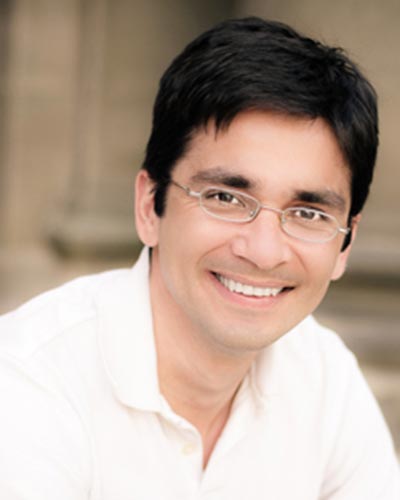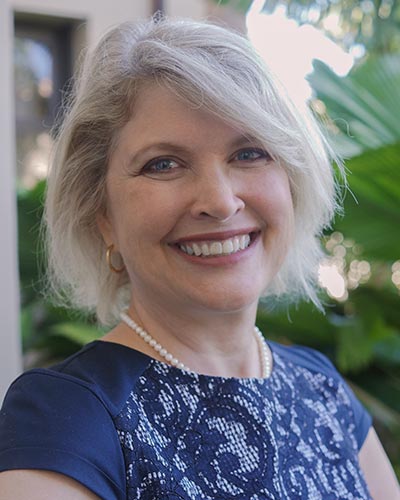When a university is located in the middle of the Pacific, how would you know if its academic opinions are valued to the west and to the east? At the College of Social Sciences, it might be because Geography and Environment Professor Camilo Mora was invited to a virtual training session on global warming, tailored for a Latin American audience, that also featured noted environmentalist Al Gore. Or because Dean Denise Eby Konan was asked to present at a Japan-based webinar on disaster preparedness led by the Association of Pacific Rim Universities (APRU), based on the College’s extensive expertise in research and training.
That’s exactly what happened this summer – at a Latin America Virtual Climate Reality Leadership Corps Training event, and at an APRU webinar, “Strengthening Multi-Hazards Disaster Preparedness: Learning from U.S. Experiences,” led by a scholar in Japan.
Highlights included:
Global warming training. Climate crisis is impacting the world at an alarming rate. Droughts threaten crops and water supplies. Floods, rising sea levels and other extreme weather events are becoming more common. And the effects of global warming are even more pronounced in Latin America, home to nearly 25 percent of the earth’s forests and arable land, and more than 30 percent of the world’s water resources, according to the Nature Conservancy.
Mora joined former U.S. Vice President Gore, and Mexican ecologist and environmentalist Julia Carabias Lillo, for a Scientist Q&A panel on global warming in July. The event’s goal was to provide expert perspectives on the topic and help nurture future climate change agents.
“Why are Latin America countries more affected by climate change? There are two key reasons,” said Mora. “First, the tropics have not been exposed to this level of climate change in the past. Second, these countries do not have financial resources to adapt and respond to these climate challenges. It is a matter of capacity and resources. Their systems are not positioned to respond to climate change and are taking a hard hit.”
Reversing climate change damage will require two things: understanding the danger the world faces, and a recognition and willingness to act quickly to support a more sustainable future. “Some impacts are not reversible. Thousands of species are already extinct,” said Mora. “But if we change the way we interact with nature, if we support sustainable biodiversity, we can stop things from getting worse.”
The Latin America Virtual Climate Reality Leadership Corps Training event was hosted by the Climate Reality Project. Founded in 2006 by Nobel Laureate Gore, the Climate Reality Project is comprised of a consortium of diverse individuals – from scientists to cultural leaders and storytellers – who are committed to building a sustainable future.
Multi-hazards disaster webinar. Accelerating the pace of university research. Training the next generation of journalists. Igniting the enthusiasm of young persuaders. These are three ways to improve international preparedness in the face of multi-hazards disaster, including COVID-19, according to Konan at the June APRU webinar. Joining her were representatives of the International Research Institute of Disaster Science, Tohoku University, Japan; University of California, Davis; and FEMA Region 9 National Preparedness Division.
“Universities around the world can respond in their own communities by using complementary tools of the social sciences,” said panelist Konan, who is also a professor of economics at UH Mānoa. “What we’ve found is that the way we talk about and respond to crises and disasters really differ across different groups of interest. So the more we can collaborate and have activities that build trust and respect for one another, including across countries, the more benefit to us all.”
Konan cited pertinent examples within CSS:
- Research. The traditional focus of university research is a peer-reviewed process that may take years from premise to final publication in an academic journal. But, starting in mid-2020, CSS faculty shifted to rapid-response research that was conducted over a matter of weeks, with the findings shared with government and business leaders and policy-makers. Topics ranged from vaccine hesitancy to food insecurity, with First Insurance Company of Hawaiʻi serving as major funder and supporter of the innovative and still ongoing effort known as the Social Sciences Effect series.
- Training. In the School of Communications, journalism students take part in a competitive tabletop exercise to cover a natural disaster – from the start of the hypothetical crisis situation, to the mock press conference, to reporting on camera under deadline pressure. “It’s the kind of preparation our students will need if they’re on the frontlines of covering disasters or other news-breaking events,” said Konan. “They are critiqued by people in the media and at agencies in terms of how accurately they’ve reported the news. It’s a good experience for everyone involved.”
- Persuasion. In early and mid-2020, when the state Department of Health was at the forefront of responding to the pandemic, CSS asked how it could assist. One of the state’s main concerns was how to persuade young people to wear face masks and practice social distancing in public, since they were less apt to do both in comparison to older age groups. Students at Mānoa Now, a chartered student organization, launched the Surfboard Apart social media campaign to persuade their peers to think seriously about COVID-19 – if not for themselves, then for their loved ones. The ads also ran on local television stations at a critical point of the state’s efforts to flatten the pandemic curve.

